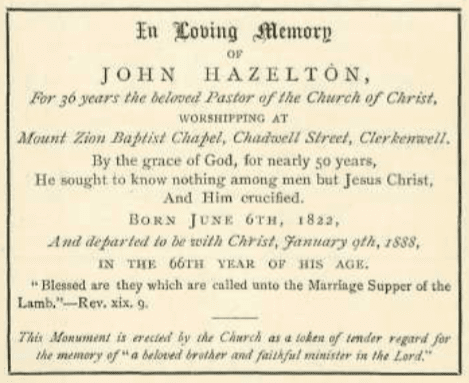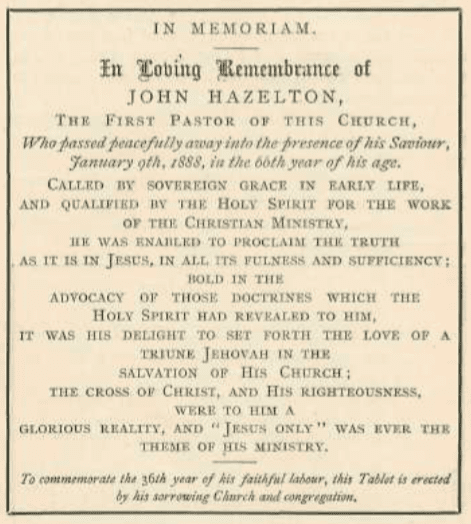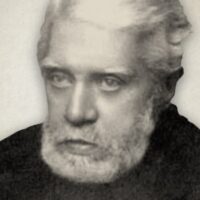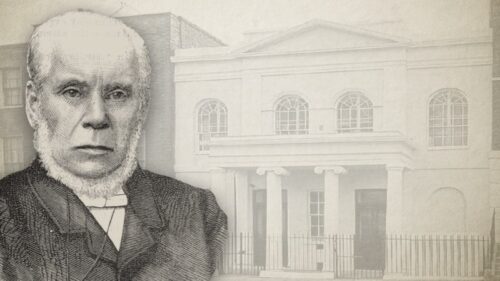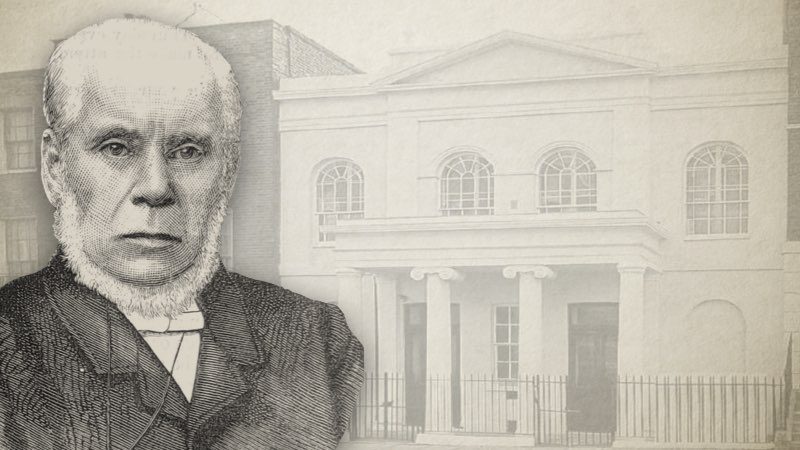
Chapter 15
How fine has the day been!
How bright was the sun!
How lovely and joyous the course that he run!
Though he rose in a mist when his race he begun,
And there followed some droppings of rain:
But now the fair traveller conies to the west,
His rays are all gold, and his beauties are best;
He paints the sky gay, as he sinks to his rest,
And foretells a bright rising again.
Just such is the Christian. His course he begins
Like the sun in a mist, while he mourns for his sins,
And melts into tears; then ho breaks out and shines,
And travels his heavenly way:
But when he comes nearer to finish his race,
Like a fine setting sun, he looks richer in grace,
And gives a sure hope at the end of his days.
Of rising in brighter array.
“Jesus can make a dying bed
As soft as downy pillows are.”
“To everything there is a season, and a time to every purpose under the heaven…a time to be born, and a time to die.” The sovereign Ruler of the skies allots to all men the duration of their sojourn here; and at His bidding the dust returns to the earth as it was; and the spirit returns to the God who gave it.
This universal truth is often singularly impressive when considered in relation to ministers of the gospel. The sovereignty which determines the measure of their gifts, prescribes the period of their service. Some are called away young, while their lives are still full of power and promise; others are spared to labour long before they are summoned to their rest.
The manner, not less than the time of the termination of their periods of service, is also prescribed by His uncontrollable pleasure. Some are called to linger through many protracted weeks of silence after life’s active business, waiting for the chariot to fetch them home: while others are summoned in the midst of pressing engagements—to lay all aside, and appear in the presence of “the great King.”
Mysterious as these matters often are, faith should check the murmurs of troubled hearts. The Lord makes no mistakes; and—though we see not yet how it can be—”all things work together for good to them that love God”—not only in the limited sphere of each little life, but in the grand and glorious progress of the undivided church of Jesus Christ. Though champions fall, and brave hearts cease to beat—though the voice that soothed or stimulated us yesterday, is now hushed for evermore, all is well.
It devolves on us, in these our last few pages, to tell how our dear friend’s long and useful life was brought to its close. Never, as we have seen, robust, his frame for many years had partially succumbed to repeated attacks of indisposition and continuous and exhaustive labours.
Comparatively early he manifested a constitutional predisposition to asthma, from which he suffered considerably; and in the winter months was often unable to sleep in his bed, but was compelled to rise in the night and sit in his study.
At length a tendency to bronchitis likewise discovered itself; and unwonted severity of the weather—or the least attack of cold—would often induce the most serious symptoms.
For this reason he was reluctantly compelled to decline almost all invitations to public meetings for ten years before his decease.
These with other physical troubles often rendered life burdensome and would have excused a less sedulous attention to duty. His devotion to the work he loved was, however, such that little else than absolute impossibility to prosecute it was allowed to prevent it. Often we have known him to travel in inclement weather to conduct a service in fulfilment of a promise, when it was evident that exertion was extremely painful, and would inevitably be followed by wearisome prostration. During the last eighteen years of his life he was not unfrequently laid aside. His attacks gradually increased in severity, and left him less able to withstand the inroads that disease was making in his frame. Almost imperceptibly he began to look worn and shrunken, and complained that his work was growing too much for him.
One circumstance was fraught with joy. His beloved son, John E. Hazelton, while retaining his position as the esteemed Secretary of the Aged Pilgrims’ Friend Society, had felt constrained to respond to the suggestion that he should lay himself open to accept invitations to preach the Gospel, and not a few Churches were gladly receiving his testimony.
It is manifest from our friend’s sermons that his own religion was at this time deepening. “My dear young hearers,” he said, some while ago, “mine is a peculiar experience which you know little about. The longer I live the more solemn, wonderful, and mysterious death appears to me to be, and the longer I live the more solemn and wonderful even life appears to be,and often-times the question silently arises within, shall I overcome at last?”[1] Again, “the night is far spent and the day is at hand; a few years ago we who are now advanced in life were very young, and if we may speak for others, we did not think much about night. Our heads, however, have become grey or bald, and we are in all respects far different to what we then were.”
He thus dwelt much on the necessity of experimental godliness, and spoke with the earnestness of one who felt that the dark river was not very far in advance of him.
It was noticed that in the family worship he prayed often for sincerity of heart, and would refer to Watts’ solemn lines:—
“Nothing but truth before God’s throne
With honour can appear;
The painted hypocrites are known
Through the disguise they wear.
Their lifted eyes salute the skies,
Their bended knees the ground.
But God abhors the sacrifice
Where not the heart is found.
Lord, search my thoughts and try my ways,
And make my soul sincere;
Then shall I stand before
Thy face And find acceptance there.”
It is remembered that often at this time he expressed his conviction that his career on earth would not last very much longer. “I shall not live to complete another volume of my sermons,” he once observed gravely, after completing his revision of the current discourse for the press.
Though far from well, he discharged the long series of services he had undertaken in April, 1887, preaching to his own people on the Thursday, visiting Mount Zion, Hill-street, and Camden Lecture Hall in the morning and afternoon of Good Friday, preaching again to his own people on the Sunday, and at Old Brentford on the Monday.
This in his weak state was too much for him, and a few weeks after he was laid aside with a sharp attack of bronchitis. From this, however, he recovered. In the early days of his convalescence he thus spoke to a friend: “I have been very ill, and I have been thinking that very possibly I was not far from my end. Convictions like these make a man solemn; I have been stock-taking and looking within to see what my spiritual possessions really are.”
He resumed his work, but was never quite the same man physically after. In 1887, it was noticed that he read hardly any other book than his Bible, and appeared to spend much of his time in meditation. His sermons were as rich and full as ever—the first after his recovery being a suggestive one on Christ the Vine (page 228).
The autumn of 1887 will long be memorable for the visit of our dear brother, H. F. Doll, the Madras agent of the Strict Baptist Mission. He arrived early in October, and shortly afterwards had an interview with the President, at which the writer was present. The meeting was almost historical in its interest. Our friend’s grave courtesy contrasted curiously with the other’s eager versatility; but a union of heart was rapidly established. They talked of many things connected with their common work, and earnest indeed were John Hazelton’s words of tender blessing as they parted.
Shortly afterwards lie was again prostrated, and his indisposition kept him from the Annual Meeting which was held at Chadwell-street Chapel not long after.
We were also present when our brother Doll called to pay his last respects to our friend previous to his return.
He looked extremely wan and worn, and for a time appeared indisposed to engage in conversation. At length he said, “Do you not think, friend S—, that our people expect too much fruit from our indispositions? They seem to think that every time we have been ill we ought to appear before them with new power and unction ; now I cannot feel that this is always the case!”
On our brother Doll’s referring to the words, “Afterwards it yieldeth the peaceable fruit of righteousness,” he replied—”Yes, afterwards—but that may be a long time you know. I cannot always feel what I have heard my brethren describe.”
The subject of the scripturalness of ministers’ being publicly ordained by the imposition of hands, having recently engaged our attention, our brother Doll described the way in which he had been ordained—and we asked our friend’s opinion. He however, said nothing, and was evidently disinclined to discuss any controversial point.
Presently he again broke the silence by saying, “Ah, well, I have felt very solemnly the force of the verse—how does it run—’secure if mortal comforts flee’?”
We repeated Dr. Doddridge’s immortal words, and he dwelt in a musing way on the last-line: “To find ten thousand worlds in Thee.” Ten thousand worlds without Him would be poverty indeed, and with Him, we can do without the ten thousand worlds—”but,” he continued, “we know what the poet meant.”
When the time for parting arrived he rose from his chair, and taking our friend by the hand, he said “My brother, good-bye, I am sorry not to have seen more of you, but it could not be. I cannot say more than I did before, but I say that from my heart, ‘God bless you.'”
The remaining weeks of the year passed on, and he somewhat recovered his strength, and was able, though at times with great effort, to reach the chapel. It is remembered that a quiet pathos characterised his ministry, which was fraught with savour and power. The sermon on the morning of the Lord’s day, December 18th, was printed in the series, and is rich not only in scriptural instruction, but in happy and telling illustrations.
His address at the Lord’s table on Sunday, January 1st, 1888, will long live in the memories of all who heard it. He dwelt on the words, “Blessed are they who are called to the marriage supper of the Lamb,” and expatiated on the suggestive figures of heaven which they present—as the rest-meal. Supper is partaken of when toil is over, when interruptions have ceased, and the scattered family are reunited at the close of the day: so the Lord’s people will be gathered to their Father’s house on high, to partake of the marriage supper of the Lord they love.
He preached on the ensuing Thursday; the following being the notes he made in preparation of the service. They are clearly and firmly written on a half sheet of waste paper:—
——————-
”But now, thus saith the Lord that created thee, O Jacob, and He that formed thee, O Israel, Fear not, for I have redeemed thee; I have called thee by thy name; thou art Mine”—Isaiah 43:1.
1. THE CLAIM. 2. THE GROUND. 3. THE ENCOURAGEMENTS.
1. The Claim: “Thou art Mine.”
(a) My new creatures, or creation. Surpasses the old, as to cost. Nearness in Christ. Method of production. Life. Glory. Duration.
(b) My joy. God rejoices in the beauty of His Church, which is His work and gift. In her perfection, for she possesses in Christ all that He requires. He delights in her graces, fruits, services, prayer, and praise. His people serve Him as Adam and as angels never could.
(c) Christ’s flesh and bones. His members; nature of each in the other. Theirs in Him and His in them.
(d) His fulness; not the world, but the Church: neither complete without the other, as Eve was the fulness of Adam. A family or body, not complete if one member is missing. There would be a void in Christ if one were lost. A perfect Church proves to the full Christ’s worth and ability to save.
(e) They have the witness of this within. Thy heart, conscience, will, life, thoughts, and person are Mine.
(f) He will do what He pleases with His own—with us.
2. The ground on which He bases His claim.
(a) Redemption and calling.
(b) Price and power.
(c) Divine revelation is necessary to assure us thereof.
3. The encouragement: “Fear not.”
(a) Saints are subject to fears. They arise from indwelling sin. There would be none, but for sin. Some, through fear, limit God as to time, place, circumstances, power, love, wisdom, and His acceptance of their souls.
(b) Fear, as to the reality of grace within. Want of temporals. Some future trouble, real or imaginary. Death and judgment.
(c) Fear not, for these reasons: Thou art Mine: I am with thee. What I have already done for thee. I save for My own sake.
(d) His words cannot be falsified. We may fear, but cannot induce God to change.
(e) The effects of this relationship. A special providence. Ministry of angels. Access to the throne. Intercession of Christ. The end, peace and glory for ever. Amen.
——————-
He was enabled to discharge the engagement to the manifest enjoyment of the congregation—no one remarking anything unusual in his delivery.
Towards the close of the week he appeared more than ordinarily unwell, but he did not abandon his intention of preaching on the Sunday, until the preceding evening, when, by his doctor’s advice, he went to bed early. The clay of rest passed calmly : none apprehending serious danger.
Part of the time he was heard by his beloved wife, talking to. himself, and she recognised that he was repeating one of his favourite verses:—
“’Tis He adorned my naked soul
And made salvation mine:
Upon a poor polluted worm
He makes His glories shine.”
She reminded him that the correct reading is “graces,” but as he again whispered the long-loved lines, he made no alteration. It may be that he changed this one word intentionally—to indicate that the light of heaven itself was dawning upon his ransomed spirit.
Later on, he murmured some unintelligible words, and going softly to his side she enquired, ” Don’t you know me, dear?” Gathering up his strength to reply, he said quite clearly, “Yes, it’s Janey” employing the endearing name with which he had been wont to address her, in the days of their first love.
Human affection and spiritual emotion seemed thus to be exerting a mingled sway over his mind, as he neared the confines of the eternal world.
He evidently knew his son, and shortly before he passed away kissed him tenderly, but “John, my boy,” were all the words his dying lips could utter.
To a friend and deacon whose kindness and attention had been very great, he also tried to speak, “Thank you for coming,” he was understood to say, and after a short interval he uttered his last audible words, “I am all right.”
The inhabitants of the great city were commencing the work of the week: the faint beams of the wintry sun were struggling to pierce the mist that hung around; as his ransomed spirit left its tenement of clay, at about eleven o’clock in the morning.
Two days after we stood beside his coffined form, which lay in the quiet study he had so loved. Near at hand were the books that he had prized, but he had done with them for ever.
His countenance was calm and serene, betokening neither rapture nor surprise, but rather thoughtful solemnity; recalling the expression he had so often noticed on his face, while the closing strains of the hymn were being sung before the sermon, and he was taking an upward glance at his Master before rising to address a congregation. Verily, that placid countenance was in itself a sermon, mutely appealing to all who beheld it, to “mark the perfect man and behold the upright: for the end of that man is peace.”
He left this earth for the “Homeland,” on January 9th, 1888.
A large and representative congregation of Christian friends assembled on the morning of Friday, January 13th, 1888, in Chadwell Street Chapel, to pay their last tribute of respect to their “brother beloved.”
Many also gathered afterwards at Finchley Cemetery to see the coffin lowered into its final resting-place, and to hear the solemn words of farewell.
His body awaits the morning of the Resurrection in grave No. 659, P., Section U., Block 2.
His affectionate flock have marked the spot by an appropriate monument, bearing the following words:—
To the back wall of the Chapel his friends have also caused a mural tablet to be fixed, the inscription on which testifies to his life-long devotion to his high calling. It runs thus:—
THE END.
——————————-
[1] Sermon 13, Vol. 4.
William Styles (1842-1914) was a Strict and Particular Baptist preacher. He served as pastor for the churches meeting at High Wycomb (2 years); Lower Holloway (3 years); Providence, Islington; Keppel Street (10 years); West Ham (4 years); West Hill, Wandsworth (6 years). After his conversion to Christ while sitting under the ministry of the Congregationalists, he was baptized by C. H. Spurgeon and became a member of the Metropolitan Tabernacle. During this time, he enrolled in the Pastors’ School. He eventually embraced high views of sovereign grace and strict communion principles, thereby leading him to join the Strict and Particular Baptist denomination. He was an outspoken opponent of the pernicious teachings of duty-faith and the free-offer, believing that no church, minister or member had a right to identify as “Strict and Particular Baptists” if holding to those errors. He took a leading role in the Metropolitan Association of Strict Baptist Churches and was a supporter of the Strict Baptist Mission. Both of these organizations now embrace the errors of duty-faith and the free-offer, standing opposed to the faith and order of the Strict and Particular Baptists.
William Styles, A Guide To Church Fellowship (Complete)
William Styles, A Memoir of John Hazelton (Complete)



